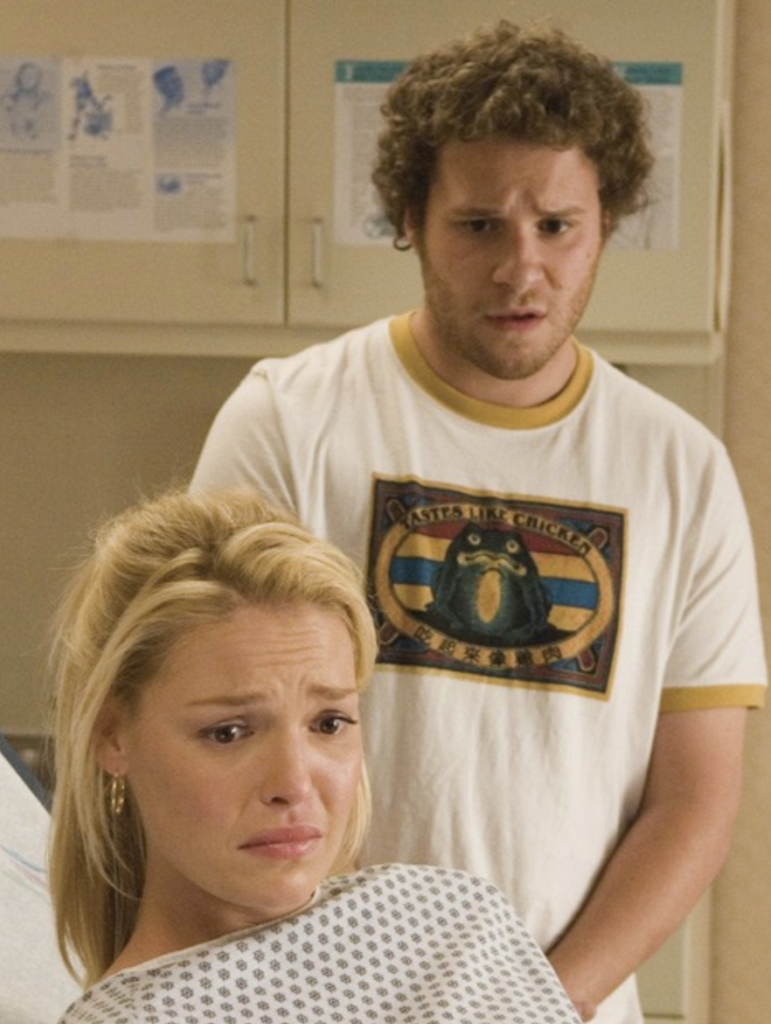Vaginismus.
Personally, I think it sounds like a magic spell from a movie when you first hear it…

Yet for the most part, women going through it will tell you first-hand that vaginismus is more like a curse.
Vaginismus refers to the spasm of your pelvic muscles during any kind of penetrative act. It cannot be controlled and occurs due to an automated fear response that is then triggered in the brain.
This spasm can be incredibly painful and uncomfortable, leaving some women having recurring painful sex, and some unable to have sexual intercourse as a result.
Try to think about it like somebody going to poke you in the eye – you’re going to want to protect your eye from the pain…
Right?
So you will no doubt close it.

It is exactly the same protective reflex, and the biggest cock block (literally) you could ever imagine.
Reasons for vaginismus can vary from person to person, including: how you were introduced to the concept of and and educated about sex during your childhood, thinking your nether regions are too small or your too tight, predisposed fear of pain, religion, or the belief that sex is bad, trauma, etc.

Well…
I’m 24 and I am a primary sufferer of vaginismus.
I’ve never been able to have sex, nor have I been able to experience full successful penetration of any kind.
For secondary sufferers, certain circumstances may have meant that you’re experiencing painful sex or you can no longer have it. This could be down to post-surgery, trauma, health issues, menopause, etc.
As a teen, I was never able to use a tampon, and assumed that the pain I was experiencing was because I was “too small,” so I stopped trying altogether.
I had my first proper relationship which lasted five years when I hit 16, and had a lot of sexual confidence as well as libido. Even though I struggled with tampons, I naively believed that I just wasn’t ready to have sex and that’s why I physically couldn’t have it.

Possibly due to a lack of knowledge himself, my boyfriend at the time seemed quite accepting of this despite a number of failed attempts – and in all honesty, we never really spoke about it properly.
He never challenged or questioned it, so I tried with all my might to keep him by pleasing him as much and as often as I could.

I thought that this was how life was meant to be, and my input in sex was not valid because it wasn’t happening.
It never really hit me that something wasn’t quite right for a long time. I was blissfully unaware of vaginismus’ impending effects.
Once my first serious relationship ended, I still didn’t budge on having sex, and still blamed it on the fact that I wasn’t ready (which didn’t bother me even then).
I was a single woman, living in London, enjoying myself with my friends and getting what I wanted out of any encounters I had.

When I met the person who I knew quickly I wanted to be with for the rest of my life, however, it was different. We met on Tinder and I travelled up to Liverpool every Friday after work to see him for months and months.
In the end, I said that I didn’t think we should be together.

“What are you talking about? That’s not what either of us want – I don’t get it?” he said.
“Well, I can’t have sex—I don’t know what’s wrong with me.”
It was a bit of a sickening feeling, as it was then, sitting on the bed half naked yet still with my socks on, a sore faff, and eyes watery, that I realized I needed help with this, and it wasn’t just going to go away on its own.
After MRI’s, painful internal examinations, and many an unfortunate misdiagnosis, eventually they found…
I had a birth defect in the entrance to my vaginal canal coupled with a narrow pelvic frame that was causing the horrific pain I was experiencing.
Once I underwent my surgery to remove the defect, I was told that this was the end of the road and that I was able to lead a happy and fulfilling sex life.
I was also signed up for physiotherapy to help me stretch the muscles.
Safe to say I was f*cking buzzing.
I went home, waited my two to three weeks for healing, and I couldn’t wait to pounce on my fella.
But nothing.

I tensed up so tight I even shocked myself. Nothing was happening, and it was literally like hitting a brick wall.
Weeks and months went by and the failed attempts were beginning to take a toll on me and affected most aspects of my life. I would cry to the girls at work, and when I got home I was in a daze, constantly analyzing the issue and how it was going to get better.
After 6 months, I went back to the gynaecologist for a follow up appointment. I was furious, confused, and I felt so fobbed off yet again.
I explained nothing was working and the pain was still there, and he slapdash told me I had something called vaginismus and that the physiotherapy should help.

“You no longer have a physical fault, so please be assured there is nothing wrong with you anymore – I’ve checked.”
I felt like he thought I was a d*ckhead with a capital D, and to be fair I felt like one myself.
The failed attempts continued and defeated me to the point where I genuinely felt like I was going slowly crazy, where I didn’t recognize myself anymore, and I was gutted that my body and brain weren’t cooperating with one another.
My confidence had depleted.
I was emotionally and mentally deflated.
I would tell my partner that he should just leave me because I was making him miss out, and if he was to be led astray, I would totally understand.
The sad thing is, is that I really meant it.
A year on from my diagnosis and it’s safe to say that it’s a slow process, but it’s a process nonetheless, and there is no quick fix no matter how hard you try.
But that’s ok – there are definitely ways around this.

I now undergo regular physiotherapy after an 8 month wait (the physiotherapist said that the referral took too long, and even though the defect was gone now, I had the disadvantage of being closed up again after the surgery, so I basically had to start over).
As well as physiotherapy, I go to psychosexual therapy and have begun to explore dilating on my own.
Vaginal dilators are smooth and usually plastic tools, aiming to develop and gradually relax the muscles at the vaginal opening.
For me, even 1 minute using them is a triumph in itself, as the idea of using a dilator and going through dilator training absolutely petrified me at first.

You see…
I spent the whole of my first physiotherapy appointment sobbing profusely whilst the nurse desperately tried to insert this luminous pink utensil into my faff—despite my stubborn leg locking.
For some individuals (not all), dilating and psychotherapy isn’t enough to break the cycle of vaginismus, and breakthroughs have been made via botox injections into the pelvic muscles to treat vaginismus.
There is an incredibly high success rate across patients globally; however, it’s particularly costly and locations are scarce.
It’s definitely worth looking into, and loads of success stories are easy to find online.
Some women can go years, sometimes the majority of their lives, avoiding sex and avoiding to seek help for a problem that can be rectified gradually when treated properly. My thorough research on vaginismus has led me to personal stories of women who are in their late 20s and are primary sufferers and to women who are in their 40s and 50s who are secondary sufferers.
Even women who have been in relationships and have been married for decades still have unconsummated relationships due to vaginismus.
Vaginismus.com states that out of every 1000 female individuals, only 2 are vaginismus patients—but how can we ever know the full stats when there are so many women too frightened and embarrassed to come forward and get appropriate treatment?
Controversially, other sites state that the problem is considered common. The Women’s Therapy Centre created an article about vaginismus statistics, and the results were based on 1460 patients as of November 2017.

Furthering this, The Women’s Therapy Centre began in 1996, and all the way up to April 2014, they found that internet search results for vaginismus sky rocketed from one sole result up to 947,000. This isn’t concrete evidence to say that all these searches equate to vaginismus sufferers; however, it does suggest that it’s a topic of hidden discussion, and people want to know more about vaginismus for one reason or another.
I would say there is definitely a societal taboo surrounding vaginismus.
However generally, the lack of medical support, knowledge, and empathy you receive alongside the lack of public conversation leads to society labelling you as “frigid,” leaving men “blue balled” because you’re such a “cock-tease.”

So when people do pluck up the courage to go and seek professional help, fears are confirmed when gynaecologists and general practitioners respond in ways such as “my suggestion to you would be to relax and glass of wine.”
This has happened to me three times in different ends of the UK, and I was absolutely gobsmacked that experts would even advocate that as a way to almost medicate my pain.
My vagina tenses up because of vaginismus, not because I don’t want sex—my libido is and always has been much higher than a lot of people I know, so to continuously hear the “relax” rhetoric was becoming tiresome.
It is a real physical pain that women are experiencing, that they do not want, and that they cannot control.
Sex should not be inexplicably painful, and I honestly think that is so very important for women to know, because every normal functioning sexual being is deserving of a happy and fulfilled sex life.
When you live with a sexual problem, it’s difficult to see this.

If you believe that you or someone you know is showing signs of vaginismus or is experiencing painful sex, obviously be sure to get checked to rule out any health issues… But please know that working together with the right medical professionals to provide you with a schedule or treatment route that you are comfortable with, as well as working on keeping a positive mindset for yourself and your own piece of mind, is the best way forward.
Although my journey is still relatively new, I know I’ve seen improvements. I definitely feel there is a light at the end of the tunnel now, whereas before the issue was dragging my whole life down.

For those suffering now, remember vaginismus is one of the most treatable sexual problems, and with an individualized treatment pathway that suits you and your needs, ultimately everything will fall into place.
Keep going—you’re doing great.
By the way, other websites to look at include the Maze Women’s Sexual Health, Dr. Pacik, as well as the London Gynae Centre if you’re interested in botox.
Also, I recommend that you get in contact with your local GP to organize a gynaecological exam if you’re unsure whether the pain you’re experiencing is related to vaginismus.
– Anonymous (24 years old, Liverpool, UK)





